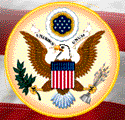 [Presidential Decision Directives - PDD]
[Presidential Decision Directives - PDD]
Creation of Military and Veterans Health Coordinating Board
November 11, 1998
On 11 November 1998 President Clinton commemorated Veterans Day by signing a Presidential Directive calling upon the Secretaries of Defense, Veterans Affairs, and Health and Human Services to establish a coordinating board to improve health care for armed forces, veterans, and families. This Directive implemented the findings of the report A National Obligation Improving the Health of Our Military, Veterans, and Their Families [August 1998] that resulted from PRD/NSTC-5 - Review of the Development of Interagency Plans to Address Health Preparedness for and Readjustment of Veterans and Their Families After Future Deployments [21 April 1997].
THE WHITE HOUSE
Office of the Press Secretary
________________________________________________________________________
For Immediate Release November 11, 1998
November 11, 1998
MEMORANDUM FOR THE SECRETARY OF DEFENSE
THE SECRETARY OF VETERANS AFFAIRS
THE SECRETARY OF HEALTH AND HUMAN SERVICES
SUBJECT: Creation of Military and Veterans Health Coordinating Board
Our Nation is truly indebted to our active duty military, reservist,
National Guard, and veterans for protecting America's interests around
the globe. From small peacekeeping missions to large combat operations,
these men and women put their lives on the line to ensure our peace and
prosperity at home and abroad. We owe them and their families a great
debt. We have an obligation to protect their health while they serve
and to care for their service-connected injuries or illnesses for as
long as they live.
Our experience with the Gulf War demonstrated that we were not
adequately prepared to deal with the health consequences resulting from
a large-scale combat deployment in the unique environment our soldiers
faced. The aftermath of this conflict underscored the need to improve
significantly our ability to address post-deployment health problems.
Your extensive efforts to understand the causes and treat the illnesses
experienced by Gulf War veterans have identified numerous deficiencies
in the way we prepare for and deal with the health of our military,
veterans, and their families. I am pleased that we are applying these
lessons learned from the Gulf War and other recent military missions to
current and future military deployments.
In its December 31, 1996, report, my Presidential Advisory Committee on
Gulf War Veterans' Illnesses recommended that the National Science and
Technology Council (NSTC) review existing Federal policies and programs
and develop an interagency plan "to address health preparedness for and
readjustment of veterans and families after future conflicts and
peacekeeping missions." The NSTC's plan, developed by your departments,
identifies numerous actions, including improved health protection for
military forces, which must be taken to avoid the mistakes of the past.
One of the key recommendations contained in the plan is to establish a
Military and Veterans Health Coordinating Board to continue improving
the coordination among your departments and to oversee the
implementation of the NSTC's plan.
Therefore, I direct you to establish the Military and Veterans Health
Coordinating Board and report annually to the Assistants to the
President for National Security Affairs and for Science and Technology
on its progress. Specifically, the Board should focus on issues
associated with deployment health, research, and communications
regarding health risks. In addition, the Board must ensure that
recordkeeping requirements linked to military and veterans health
preparedness, health protection for military forces, disease
prevention, and medical care are incorporated into your departments'
relevant information technology and information management systems.
WILLIAM J. CLINTON
# # #
 [Presidential Decision Directives - PDD]
[Presidential Decision Directives - PDD]